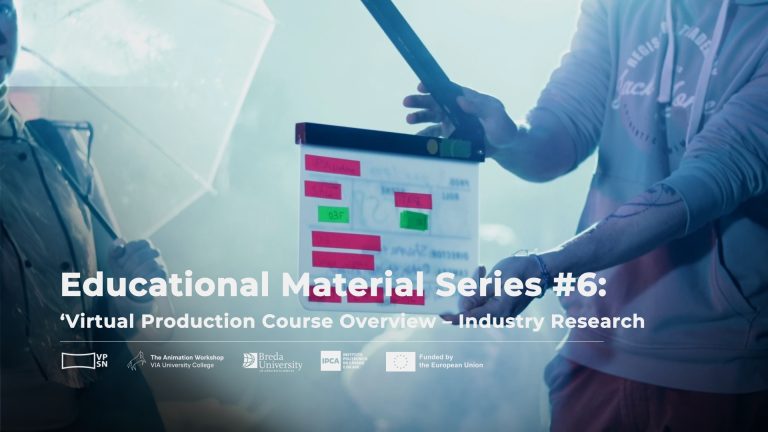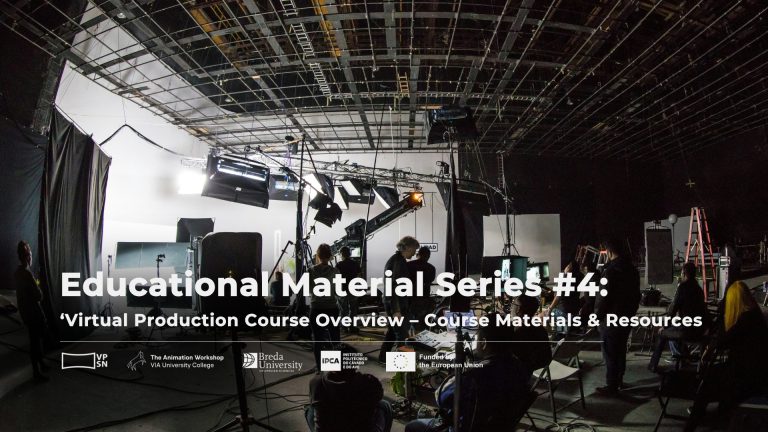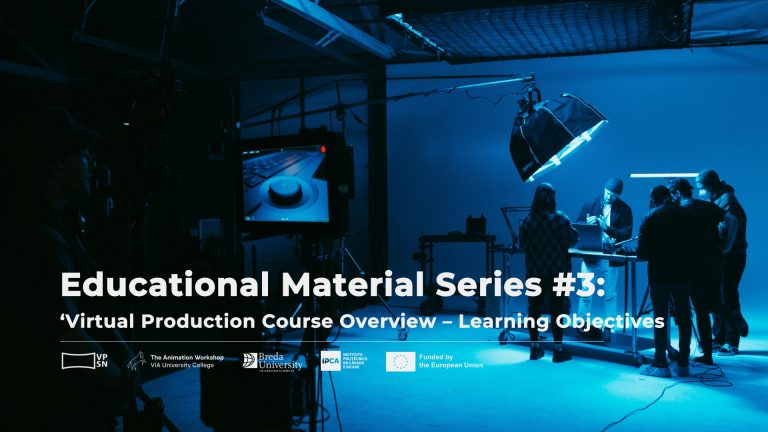Why Virtual Production Matters for Students: Exploring the VPSN Course
Welcome to the fifth article in our web series on the Virtual Production Studio Network (VPSN) course! This article is specifically designed for students, emphasizing the core values and benefits of virtual production as part of your education or extracurricular research area. We’ll provide a quick onboarding on why the VPSN course could be an interesting read for you, helping you gain further knowledge and get an edge in your studies. We’ll also explore why virtual production, real-time technology, and all the associated skills are relevant to budding young professionals and upcoming talent in the creative, digital, and visual industries.
Project Brief: Virtual Production Course Description
The virtual production course is designed to provide educators and students with a comprehensive understanding of virtual production. It spans 14-16 weeks and covers various aspects of the technology, from foundational knowledge to practical applications and workshop sintegration. Here’s a brief overview of what you can expect:
Introduction to Virtual Production: In the first week, you’ll learn about the history and significance of virtual production, and understand the differences between traditional and virtual production methods. This foundational knowledge sets the stage for the rest of the course.
Pre-production: Weeks 2-5 focus on pre-production, where you’ll gain proficiency in essential tools and techniques such as Unreal Engine, camera tracking, and lighting setups. You’ll also explore pre-visualization, tech-visualization, and VR scouting. These skills are crucial for creating cohesive and realistic virtual production environments.
Testing: Weeks 6-8 are dedicated to testing, allowing you to apply your knowledge and skills in a controlled environment. You’ll independently test your short film shots in the XR Stage/LED volume, identifying and resolving issues before the actual production.
Reflection: Week 9 is for reflection, where you’ll review your testing results, make necessary changes, and document your learning progress. This stage promotes self-assessment and the ability to adapt, which are vital for professional growth.
Shooting: Weeks 10-13 involve the core of the production process. You’ll independently film your short film shots in the XR Stage/LED volume, applying all your learned skills in a real-world setting.
Post-Production: Weeks 14-16 focus on post-production, where you’ll edit and finalize your film. This stage emphasizes the importance of editing skills and the ability to produce a polished final product.
Throughout the course, you should work in teams to develop, produce, and collaborate on virtual production projects. This fosters communication and teamwork, which are vital skills for personal and professional growth.
Core Purpose and Benefits of Virtual Production
Virtual production combines real-time technology with traditional filmmaking techniques, offering creative possibilities and efficiencies:
- Innovative Learning: Virtual production allows you to explore new ways of creating content, from real-time rendering to immersive environments. This practical and hands-on learning approach enhances your creativity and problem-solving skills.
- Technical Proficiency: The virtual production course covers essential tools and techniques, such as Unreal Engine, camera tracking, and lighting setups. Mastering these skills can make you a versatile professional in the media industry.
- Collaborative Experience: Virtual production often involves working in teams, fostering collaboration and communication skills. These experiences are invaluable for your personal and professional growth.
- Recruitability: All the skills applied in virtual production are highly sought after in industries like games, visual effects (VFX), film, and animation. Learning about or getting skilled at the technology and software used in virtual production can make you more attractive to potential employers and give you a competitive edge in the job market.
- Lifelong Learning: The media industry is constantly evolving, and staying updated with the latest technologies is crucial! The industry and this course encourage continuous upskilling and adaptability, helping you stay ahead in your field.
- Motivation and Drive: Demonstrating your willingness to learn new technologies and embrace challenges can set you apart from your peers. Exploring virtual production during your education and training provides a platform for you to experiment, fail forward, and learn from your experiences without fear of failure.
Wrapping Up the Article
We invite you to explore the full VPSN course materials and resources available on the VPSN website. These materials are designed to be easily accessible and provide high-quality content to support your learning journey. Whether you are looking to integrate virtual production into your studies or planning to pursue it as an extracurricular activity, these resources offer valuable support and guidance.
The VPSN course material and resources provide a comprehensive and high-quality foundation for understanding and integrating virtual production into your education. By leveraging these materials, you can enhance your skills, prepare for your future career, and stay ahead in a rapidly evolving industry. Dive deeper into the course materials and resources available on the VPSN website and discover the full potential of virtual production today!
About VPSN
The VPSN project is an Erasmus+ initiative, collaboratively developed by three partners: The Animation Workshop/VIA University College, Breda University of Applied Sciences, and the Polytechnic Institute of Cávado and Ave. This partnership aims to create educational materials and frameworks for other educators and students, leveraging Breda University’s extensive experience in virtual production. By sharing this knowledge, the VPSN project seeks to support the European industry and educational field, particularly those interested in virtual production as an emergent technology.



